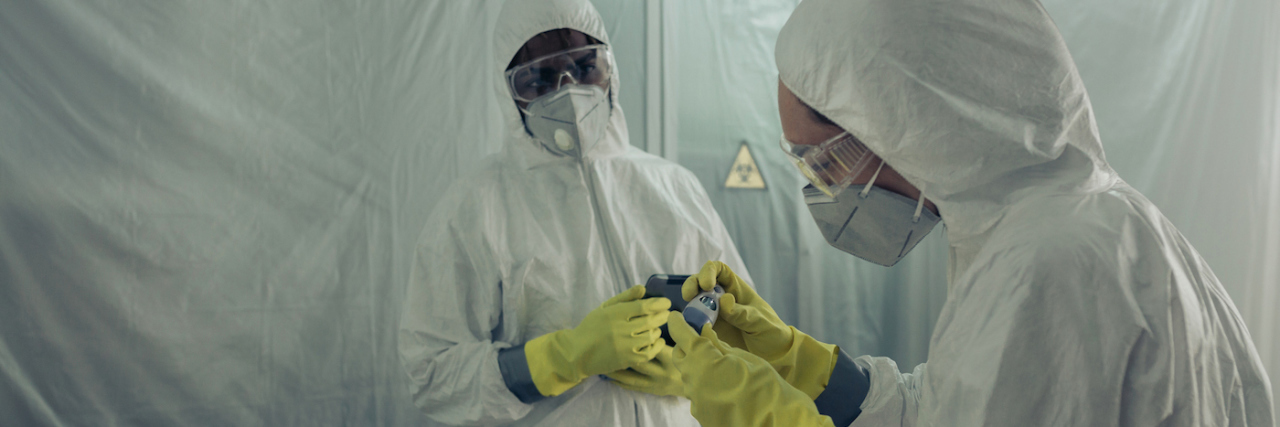How We Can Really Support Our Frontline Workers Right Now
Editor's Note
If you want to have a conversation with people who “get it,” join The Mighty’s Chat Space group.
Working in any frontline job is no barrel of laughs at the best of times. The shifts are long, the work is mentally and physically exhausting, you’re constantly waiting for the next thing to go wrong and you know that when it does, your team can be what stands between someone living or dying.
I don’t talk about my time working in the NHS (National Health Service) much. Mostly because of confidentiality, of course, but also because I don’t want to inflict the scars I’m carrying onto anyone else. Because despite the good moments, the great moments, the patients who were saved, or brought into this world on our watch… it can never erase the bad moments. The sad moments. The moments where you question your ability to do this job.
In the end I couldn’t. Not only was it destroying me mentally, but physically it was battering me — to the point my fibromyalgia became both evident and severe. Now, I’m reliant on people who I once regarded as colleagues, and who now see me as another patient. But it’s OK… because I’m free. Not from the scars or the nightmares — the patients who should’ve lived, or died alone. But free from a future of those nightmares. My old colleagues are not so lucky.
Right now the NHS is dealing with the worst crisis our generation has had to face medically. They’re in pain. They’re hurting. They’re exhausted. They’re dying. But on top of that, they’re seeing more scarring things in one shift now than they would likely have seen in a month before. Because those teams work hard to keep patients alive, and despite what medical dramas would have you believe, the traumas and disasters aren’t usually all that frequent. What they’re seeing on a daily basis now with the coronavirus (COVID-19) is not something that can just be locked away in a box before the next shift. It needs to be processed, understood and made peace with.
Mental health support needs to be freely, clearly and readily available to anyone working on the frontline — and openly promoted and encouraged by departments. Mental health issues are not a sign of weakness. Seeking mental health support does not make you broken and does not mean you’ve failed. It means being strong enough to know when you need an extra hand to hold you up and someone to listen when there is nobody else who can.
I’m so grateful to my former colleagues and any other frontline workers right now for the job they’re doing. But instead of just clapping for them every week, please, let’s make sure they get the mental health support they need instead!
For more on the coronavirus, check out the following stories from our community:
Getty image by doble-d

